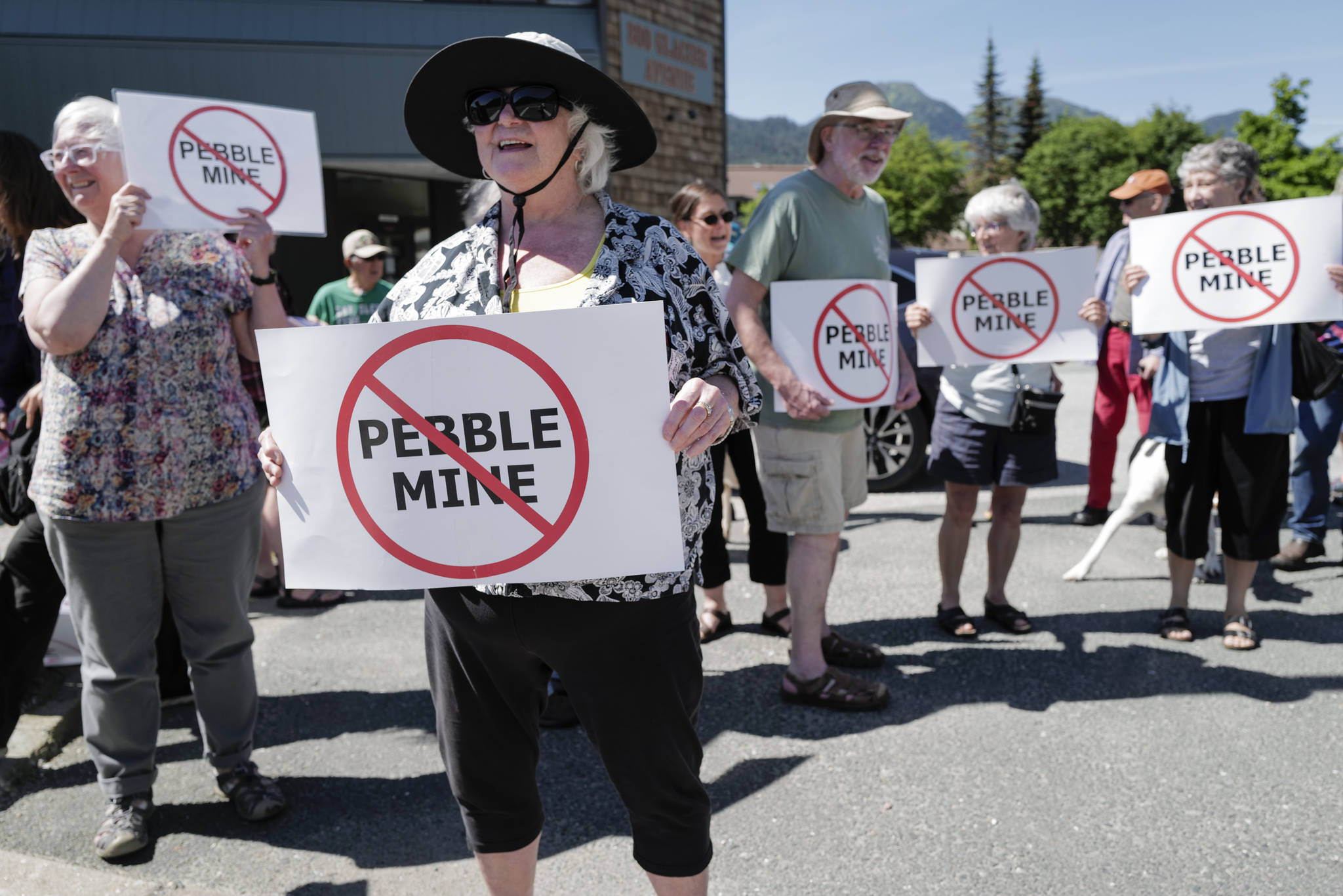Two requests to appeal the decision to deny a key permit for a proposed copper and gold mine in Southwest Alaska met different fates.
The Army Corps of Engineers didn’t accept the state’s attempt to appeal a November 2020 decision to deny a permit for the proposed Pebble Mine, a long-controversial effort to place an open-pit mine near the headwarters of the largest sockeye salmon fishery in the world.
Meanwhile, Northern Dynasty Minerals Ltd., the Vancouver-based parent company of Pebble Limited Partnership, reports that a Feb. 24 letter indicated the corps accepted Pebble’s request for an administrative appeal.
Mike Heatwole, a spokesperson for Pebble Limited Partnership, said Saturday in an email Pebble looks forward to having the appeal fully vetted.
In an email, Luciano Vera, deputy chief of public affairs for the U.S. Army Corps of Engineers’ Pacific Ocean Division, said the division engineer determined that the state does not meet the definition of an “affected party.”
Gov. Mike Dunleavy vehemently disagreed with the determination in a fiery Friday news release.
“This is another example of the federal government imposing a flawed decision that blocks Alaska’s ability to responsibly develop its land and resources,” Dunleavy said in the release. “That authority and obligation were laid out in the Alaska Statehood Act and the Alaska Constitution, so I can’t overemphasize the far reaching implications that federal decisions like this have on our ability to have a sustainable and growing economy. This is a precedent setting decision that puts all possible resource development projects on State land at risk and cannot be accepted. We will not stop fighting for Alaska’s economic prosperity.”
The appeal efforts were not well-received by a tribal consortium working to protect the lands and waters of Bristol Bay.
“Recent updates on the efforts to appeal the Army Corps denial of the Pebble’s permit highlights the urgent need for permanent protections in Bristol Bay,” said United Tribes of Bristol Bay Executive Director Alannah Hurley in a statement provided by a spokesperson. “Ongoing questions surrounding Pebble’s appeal create uncertainty and confusion for all those who depend on Bristol Bay’s robust natural resources. The Tribes, communities and others who rely on Bristol Bay need the assurance of Clean Water Act protections that these pristine lands and waters will remain intact for years and generations to come.”
Exactly how soon a final decision regarding the accepted appeal will be made is unclear.
A corps division engineer typically makes a final decision on the merits of an appeal within 90 days of receipt of an acceptable request for appeal, according to the corps’ administrative appeal process. However, delays to a site visit can potentially extend the process.
According to the corps’ appeal process, in no case will such a delay extend the total process past a year from the date of receipt of an acceptable request for appeal.
• Contact Ben Hohenstatt at (907)308-4895 or bhohenstatt@juneauempire.com. Follow him on Twitter at @BenHohenstatt.

